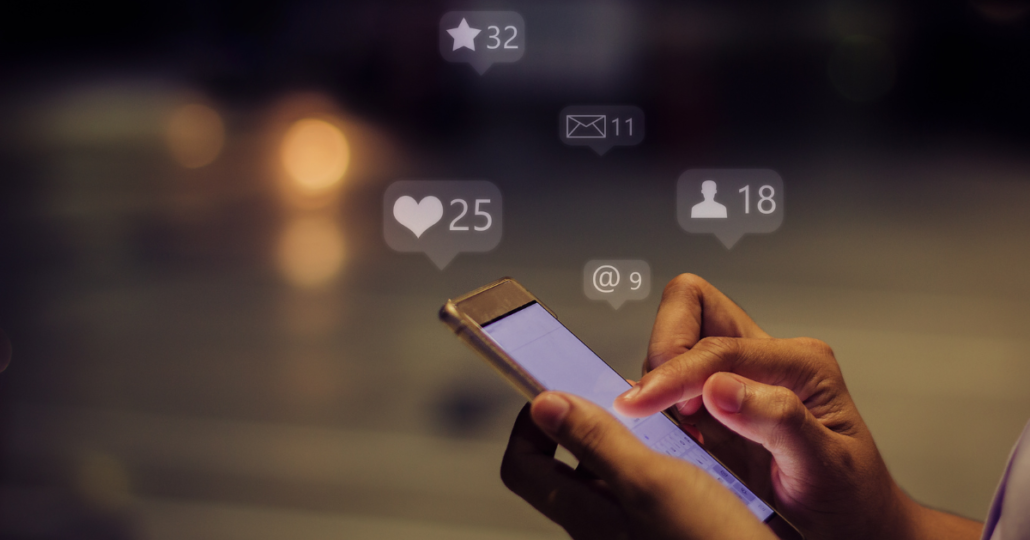Teenagers’ use of social media has permeated every aspect of their lives, greatly impacting their relationships, sense of self, and stress levels. It provides a forum for creativity and connection, but it also carries serious threats to mental health.
As social media usage among teens rises, it’s crucial to understand its effects and develop strategies to address these challenges. In this article, we explore the impact of social media on teen mental health and provide actionable steps to support well-being.
Understanding Social Media’s Influence on Teen Mental Health
HHS reports that teens using social media for over three hours daily are twice as likely to experience mental health issues. With teens averaging 3.25 hours daily on social media, concerns are rising about body image, sleep quality, and exposure to harmful content.
Teen mental health is influenced by social media in ways that impact social connections, emotional stability, and self-worth. Idealized lives and images might cause unjustified comparisons and conformity pressure. Immediate feedback from peers also impacts mood and self-worth.
Key Mental Health Issues Linked to Social Media
Social media is linked to significant mental health issues in teens, such as anxiety, depression, and low self-esteem. Due to frequent comparisons with others, the platforms frequently exacerbate peer pressure, cyberbullying, and feelings of inadequacy. These difficulties are exacerbated by the desire for validation and the fear of missing out (FOMO), which calls for targeted solutions.
NCBI states that in a survey of 179 students, 30.17% reported depression, 49.16% experienced internet addiction, and 34.64% suffered from anxiety, all linked to social media use. Female nursing students aged 18-20 showed higher rates of low self-esteem (24.75%) and depression (38.51%), highlighting the mental health issues tied to social media, especially among young women.
Through filters and curated content, these platforms promote unrealistic beauty standards, pressuring teens to conform. This pressure can lead to serious health issues, including eating disorders, as teens attempt to meet these unattainable ideals. Persistent exposure to such images can exacerbate body dissatisfaction and promote unhealthy behaviors.
For example, the impact of Snapchat’s idealized images on body image has also led to legal actions against the platform. A Snapchat lawsuit argues that the platform’s promotion of idealized and manipulated images contributes to harmful body image issues among its users. These cases pursue compensation for the mental health effects experienced by teenagers exposed to unrealistic expectations.
TorHoerman Law suggests Snapchat and similar platforms could face liability for mental health issues experienced by teens and young users. If affected, consulting a legal professional with experience in such cases can help guide you through potential legal options.
Evidence of Social Media’s Impact
Studies reveal a strong correlation between social media use and mental health problems in teens. Increased anxiety, depression, and sleep disturbances are often linked to heavy social media engagement. Evidence highlights the detrimental effects of online harassment and excessive screen time, stressing the need to address mental health implications.
The National Center for Health Research provides clear evidence of social media’s impact. It states that 35% of adolescents use platforms “almost constantly,” with 54% struggling to “give up” social media. Social media is viewed positively by 32% of users, but mental health concerns such as depression and body image issues are prevalent. Cyberbullying affects 72% of teens, with severe consequences.
To counteract social media’s negative effects, it is important to set screen time limits and encourage offline activities. Also, maintain open communication about online experiences. Parents should promote healthy social media habits and educate teens on the impact of their online behavior.
Role of Schools and Communities
Incorporating digital literacy, online safety, and mental health impact into educational programs can equip students with essential skills. Community initiatives like support groups and workshops also provide valuable resources to help teens and their families manage social media challenges.
Seeking Professional Help
Teens experiencing mental health problems as a result of social media use need to seek professional assistance. Counseling, therapy, and anxiety and depression management techniques are provided by mental health specialists. Early intervention and support are critical in addressing social media’s negative effects and helping teens develop effective coping mechanisms and resilience.
FAQs
How does social media use contribute to anxiety and depression in teens?
Social media use contributes to anxiety and depression by promoting unrealistic comparisons, amplifying peer pressure, and exposing teens to cyberbullying. The constant need for validation and fear of missing out (FOMO) exacerbate feelings of inadequacy, leading to increased anxiety and depressive symptoms.
What steps can parents take to monitor and manage their teen’s social media use effectively?
Parents can effectively monitor and manage their teen’s social media use by setting time limits and supervising online activities. Maintaining ongoing discussions about social media also helps. It’s essential to model healthy behavior, address problematic use, and teach social media literacy. This multipronged approach can help protect teens’ brain development and promote safe, balanced social media engagement.
How can schools integrate social media education into their health curriculum?
Schools can include social media education in their curriculum, focusing on digital literacy and online safety. Interactive workshops, guest speakers, and practical scenarios help students understand social media’s effects and develop healthy online habits and coping strategies.
Addressing the growing influence of social media on teen mental health requires collaboration from parents, schools, and communities. Social media, while offering valuable connections, also brings risks like anxiety, depression, and low self-esteem. Understanding these impacts and implementing strategies such as setting limits, encouraging offline activities, and fostering open communication are essential.
